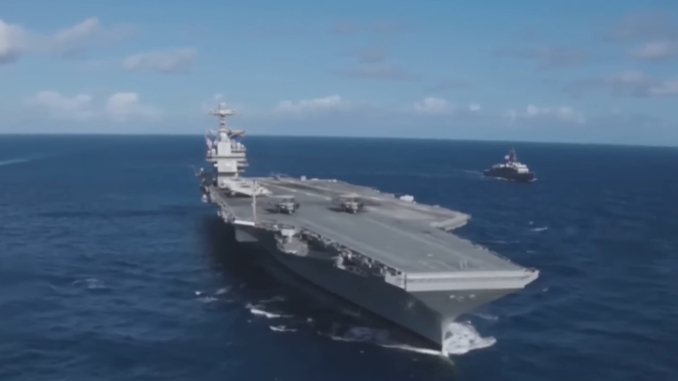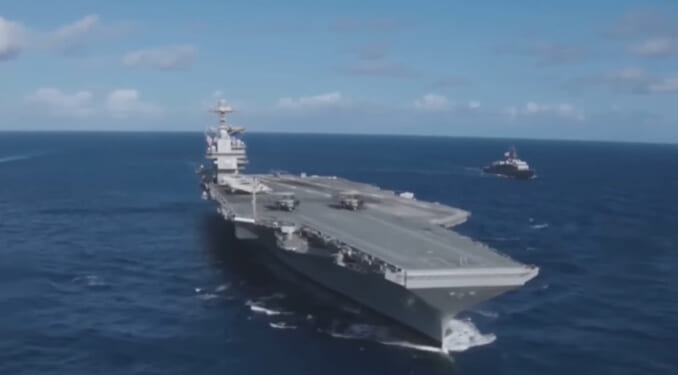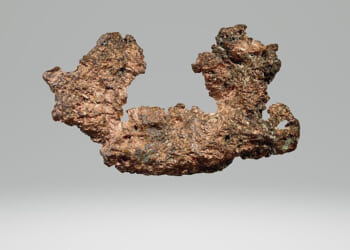
By Phil Giraldi
A recent story out of South America reveals how U.S. Foreign Policy has been quite plausibly perverted by special interests in spite of Trump administration claims that it is guided by the MAGA (Make America Great Again) objective. Donald Trump ran for the presidency based on several overriding principles that it promoted as benefiting the American people, including an end to pointless wars and an massive cut in the federal budget to eliminate useless programs and jobs that did little beyond providing employment for political appointees.
Click the Link Below to Listen to the Audio of this Article
Trump made a good start, working with Elon Musk to eliminate programs and jobs, but that effort soon petered out as the special interests, both at federal and state levels, began to push back, demanding the access and services that they had become accustomed to.
To be sure, Trump has taken steps to empower himself and his appointees as the final arbiters of the legality of anything his administration does. An executive order he signed in February says:
The president and the attorney general’s opinions on questions of law are controlling on all employees in the conduct of their official duties. No employee of the executive branch acting in their official capacity may advance an interpretation of the law as the position of the United States that contravenes the president or the attorney general’s opinion on a matter of law.
Since that time, that justification has been used to summarily fire officials at both senior and mid-levels, but it has not shifted the balance inside the government even if the ongoing shutdown has reduced both employment levels and expenditures on salaries and benefits.
The doctrine of virtually unlimited presidential prerogative, to include ordering murders, advanced by Trump has meant that the normal bureaucratic and constitutional checks and balances no longer work. This is best illustrated by the continuation of unnecessary wars in Ukraine and Gaza that both Congress and a significant part of the media support in spite of the huge downside and popular disapproval. From within the administration, senior officials, who were singularly unqualified for the jobs they were holding, were able to push their own agendas without any real understanding coming from a singularly ignorant president.
This waging war for no or all the wrong reasons is best exemplified by the war against so called “narcotraffickers” that is being waged in the Caribbean Sea and Pacific Ocean, focused on “enemy” regimes in Venezuela and Colombia. A significant build-up of U.S. forces in the Caribbean, to include America’s largest aircraft carrier, suggests that Trump’s warning regarding a possible ground action may be about to commence with attacks on military and foreign government sites. Trump explained in a press conference how the “sea drugs” coming in are “5% of what they were a year ago. So now they’re coming in by land. … The land is going to be next!”
And the “necessary” military action might quite possibly be an intervention that really is aimed at toppling Venezuelan leader Nicolas Maduro. It is reported that Maduro has already survived multiple overt and covert attempts by the United States to replace him, but this will be the first employment of so-called U.S. military “boots on the ground” to bring him down.
Trump’s animosity toward Venezuela in particular goes back to the president’s first term in office, but it did not necessarily have to morph into today’s all-out threats of aggression. Early on, there was some hope that the White House would come to an understanding with Maduro.
Among Trump’s first foreign policy initiatives in early 2025 was the dispatch of special envoy Richard “Ric” Grenell to broker a “modus vivendi” with the Caracas regime. Under the deal, Chevron would continue to export Venezuelan crude stateside, where it would be refined by way of the renewal of a Joe Biden-era oil license. Caracas also agreed to accept deportation flights of its citizens due to suspension of the temporary protected status granted to an estimated 350,000 Venezuelan expatriates who are now in the United States.
The administration thereby had made good on two of its campaign pledges: boosting the supply of fossil fuels and deporting migrants. Trump acknowledged the agreements, saying Maduro “offered everything. You know why? Because he doesn’t want to f*** around with the United States.”
Then everything came apart under pressure emanating from the politically powerful Cuban community in Miami, which threatened to oppose Trump legislation across the board if the intense pressure on leftist regimes in Latin America were not restored. The current military build-up and the routine killing of seamen on small boats in international waters without any Constitution-mandated congressional declaration of war or even evidence of intended wrongdoing followed the subsequent hardening of positions by Trump.
Its audacity is remarkable and has shocked observers all along the political spectrum. American Secretary of War Pete Hegseth put it somewhat differently, promising a forever war against drugs:
Our generation spent the better part of two decades hunting al Qaeda, hunting ISIS. As the president said, this is the ISIS, this is the al Qaeda of the Western Hemisphere. … Our message to these foreign terrorist organizations is that we will treat you like we treated al Qaeda. … We will kill you.
Washington insiders believe that the aggression has largely been justified and advanced through the good graces of Marco Rubio, who now holds the positions of secretary of State and national security adviser. Rubio is, to no one’s surprise, a south Florida product of a family that fled Fidel Castro’s Cuba and brought with it hardline sentiments about left-wing governments which, at the time, proliferated in Latin America.
For Rubio, the confrontation with and elimination of such governments has long been a prime objective for him and for his extremely conservative supporters mostly situated in Miami. He has now found himself well placed to go after the folks to America’s south that he considers to be the enemy, even though those countries do not realistically threaten the United States.
In the case of Venezuela, the current No. 1 target, the country does not even figure as a serious drug exporter, a contrary conclusion which comes from the U.S. intelligence community, which has assessed that little to none of the fentanyl trafficked to the United States is being produced in Venezuela, despite recent claims from the Trump administration.
Beyond that, many of the boats targeted for strikes by the Trump administration do not even have the requisite gasoline or motor capacity to reach U.S. coastal waters, dramatically undercutting claims by Hegseth.
After his appointment as secretary of State, Rubio focused on persuading MAGA conservatives and other right-wing political fringe factions, which have been seeking anti-drug cartel wars in Mexico, to redirect toward Venezuela. In addition, Rubio found numerous allies among his colleagues within the administration, notably the Florida natives that surround the president and who are well versed on the narrative of Venezuelan “narcoterrorism.” They include Attorney General Pam Bondi, FBI Director Kash Patel, Chief of Staff Susie Wiles, and Deputy Chief of Staff Taylor Budowich.
Rubio and his friends have clearly persuaded the president, as well as the important policymaker Stephen Miller, that removing Maduro, whom U.S. officials have characterized as an “illegitimate leader,” would not only halt drug flows, but also enable further deportations by installing the subservient Venezuelan opposition.
And, while Maduro has allegedly offered to hand over all of Venezuela’s resource wealth to Washington, the hawks no doubt argue that the opposition, once in power, would be better trusted to hand over the country’s oil anyway. In October, Trump ordered Grenell to suspend further negotiations with Caracas.
Some observers note that invading Venezuela to bring about regime change might well bring complete collapse in the government and the society, and would have major implications regionally, generating major new flows of refugees and bringing oil production to a halt. It is even possible that radical leftist groups behind Maduro, flaunting their “Bolivarian” credentials, might come out on top.
But it’s not likely that Rubio and his friends are concerned about those possibilities, as they believe that, if it comes to a fight, they will win. Indeed, some would disagree, arguing that cutting a new deal with Maduro that substantially benefits U.S. interests might turn out to be a better option than going to war.























